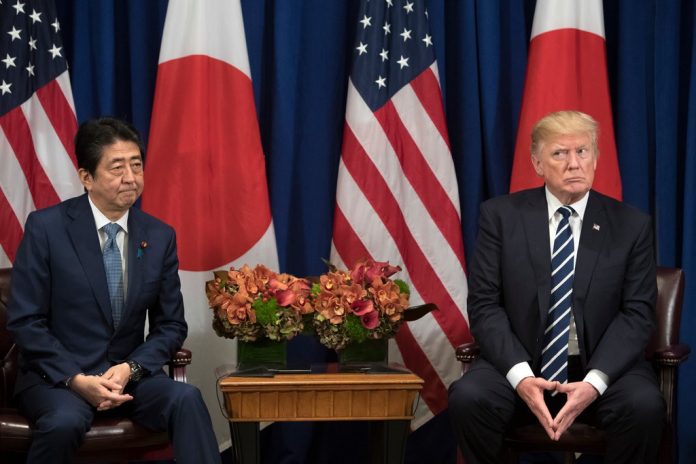TOKYO–Imports of US aircraft helped push Japan to a trade deficit in May, official data showed on Monday, but experts said it was a temporary effect not linked to ongoing trade tensions.
Japan’s imports rose 14.0 per cent in May from a year earlier, according to finance ministry data.
Exports also enjoyed an 8.0 percent rise but the overall effect was a net deficit of 578.3 billion yen ($5 billion). The deficit was nearly three times the size of the figure last year and came after two consecutive months of surplus.
“The deficit came from a surge in imports from the United States,” said Takeshi Minami, chief economist at the Norinchukin Research Institute, noting a quadrupling of Japan’s purchases of US aircraft.
He also noted that crude oil prices rose strongly, pushing Japan’s import bills higher.
“It’s a temporary rise and is not linked to trade policies,” he said, ruling out the possibility that Japan was boosting purchases of US products as Washington adopts an increasingly protectionist trade policy.
“Exports will keep growing for a while but we should be cautious against protectionist moves, a possible slowdown in the robust US economy, and how emerging markets are faring in light of hikes in US interest rates,” Minami told AFP.
Overall Japanese imports from the US rose nearly 20 percent year-on-year, meaning its politically sensitive trade surplus with Washington fell 17.3 per cent.
Meanwhile, Japan’s deficit with its biggest trading partner China shrank 10.4 percent with exports growing 13.9 per cent.
Worries about a trade war are growing as Washington and Beijing exchange tit-for-tat tariff announcements.
Marking a departure from a decades-long, US-led drive for open and free trade, President Donald Trump has claimed that massive flows of imports to the United States threaten national security.




